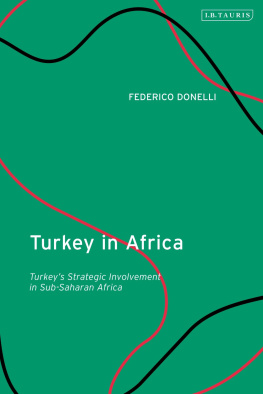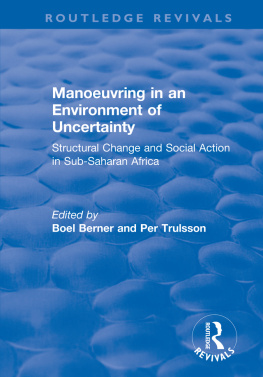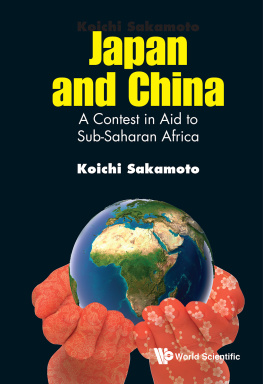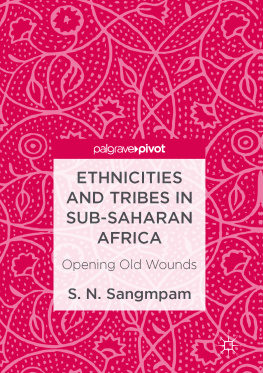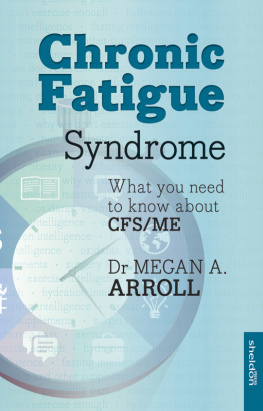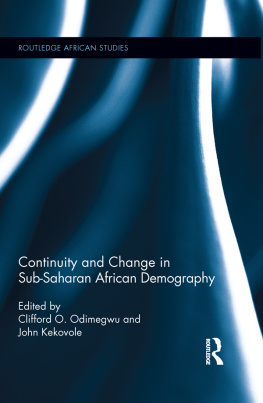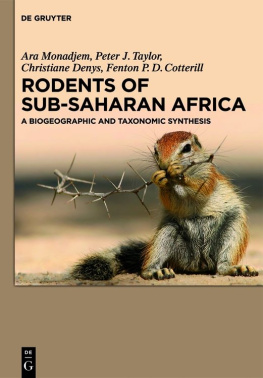First published in 2021 by
UCL Press
University College London
Gower Street
London WC1E 6BT
Available to download free: www.uclpress.co.uk
Collection Editors, 2021
Text Contributors, 2021
Images Copyright holders named in captions, 2021
The authors have asserted their rights under the Copyright, Designs and Patents Act 1988 to be identified as the authors of this work.
A CIP catalogue record for this book is available from The British Library.
This book is published under a Creative Commons 4.0 International licence (CC BY 4.0). This licence allows you to share, copy, distribute and transmit the work; to adapt the work and to make commercial use of the work providing attribution is made to the authors (but not in any way that suggests that they endorse you or your use of the work). Attribution should include the following information:
Vaughan, M., Adjaye-Gbewonyo, K. and Mika, M. (eds.). 2021. Epidemiological Change and Chronic Disease in Sub-Saharan Africa: Social and historical perspectives . London: UCL Press. https://doi.org/10.14324/111.9781787357044
Further details about Creative Commons licences are available at http://creativecommons.org/licenses/
Any third-party material in this book is published under the books Creative Commons licence unless indicated otherwise in the credit line to the material. If you would like to reuse any third-party material not covered by the books Creative Commons licence, you will need to obtain permission directly from the copyright holder.
ISBN: 978-1-78735-706-8 (Hbk.)
ISBN: 978-1-78735-705-1 (Pbk.)
ISBN: 978-1-78735-704-4 (PDF)
ISBN: 978-1-78735-707-5 (epub)
ISBN: 978-1-78735-708-2 (mobi)
DOI: https://doi.org/10.14324/111.9781787357044
Kafui Adjaye-Gbewonyo is a social epidemiologist with an interest in sociocontextual determinants of health in relation to non-communicable disease in the Africa region. She is currently a Senior Lecturer in Public Health and a member of the Centre for Chronic Illness and Ageing (Institute for Lifecourse Development) at the University of Greenwich. Kafui is also a Visiting Research Fellow and former Research Associate at UCL.
Betsey Behr Brada is Assistant Professor of Anthropology at Reed College in Portland, Oregon. Her research, focused on Southern Africa, investigates how individuals and institutions take up, negotiate and transform aspects of biomedical education and treatment in the context of global health and humanitarian interventions.
Catherine Burns is a historian based at the University of the Witwatersrand in Johannesburg, where she inaugurated the first medical humanities interdisciplinary programme in the Southern African region. Her research and teaching interests focus on the history of women; medical and health history; the history of reproduction and sex; ethics in health research; and the history of gender on the African continent, in comparative perspective.
Shane Doyle is Professor of African History at the University of Leeds. He also serves as an editor on The Journal of African History .
Marissa Mika is a historian and ethnographer who works on issues where politics, science, technology and medicine intersect in contemporary Africa. She is completing a book on the history of cancer research in Uganda.
Amy Moran-Thomas is a cultural anthropologist, interested in ethnographic approaches to health, medical technology and care in contexts of chronicity. She is Alfred Henry and Jean Morrison Hayes Career Development Associate Professor of Anthropology at MIT. Her publications include a book about families navigating the rise of diabetes, Traveling with Sugar: Chronicles of a Global Epidemic (University of California Press, December 2019), as well as essays appearing in New England Journal of Medicine , Global Public Health and Cultural Anthropology .
Michelle Pentecost is a Lecturer in Global Health and Social Medicine at Kings College London and an honorary research affiliate of the Department of Anthropology at the University of Cape Town. Michelle is a physician-anthropologist by training and her research and publication record reflects her work and interest across disciplines including clinical medicine, anthropology, science and technology studies, the medical humanities and global health.
Ruth J. Prince is Associate Professor in Medical Anthropology at the University of Oslo. Her research focuses on East Africa, most recently on critical global health, chronic disease and care. She is leading a European Research Council Starting Grant project on Universal Health Coverage and the Public Good in Africa (201823).
David Reubi is a Senior Lecturer in Sociology and Anthropology at the Department of Global Health & Social Medicine, Kings College London. His research explores the politics of knowledge in contemporary global health and biomedicine. He is finishing a manuscript on the biopolitics of the African smoking epidemic and beginning a new project on cartographies of cancer in sub-Saharan Africa.
Olutobi Sanuade is a population scientist with an interest in non-communicable disease and chronic disease epidemiology, care, social determinants, and health systems response in low- and middle-income countries. He is currently a Research Fellow at the Institute for Global Health, UCL. At UCL, he is working on the Lancet Nigeria Commission project, which aims to strengthen the Nigerian health system in a way that maximises the health and human capital of the Nigerian population by 2050.
Kavita Sivaramakrishnan is a historian of health and medicine with a focus on South Asia, and comparative interests in South Africa. She is based at Columbia University and has published on the recasting of Ayurvedic practice in India, on the politics of experts and expertise relating to epidemics, campaigns around cancer care and a recent book on global ageing, entitled As the Wor l d Ages (Harvard University Press, 2018). Her current historical research focuses on the production and consumption of chronic exposures and health risks across the life course in India and beyond.
Simon Szreter is Professor of History and Public Policy, University of Cambridge, Fellow of St Johns College Cambridge and co-founder and managing editor of historyandpolicy.org. He teaches modern British and World demographic history in the History Faculty at Cambridge and has most recently published the edited volume, The Hidden Affliction : Sexually Transmitted Infections and Infertility in History (Rochester Studies in Medical History, 2019).
Megan Vaughan is Professor of African History and Health at UCL, having previously held posts in Cambridge, Oxford and the City University New York. She is a historian and anthropologist who has worked extensively on health, nutrition, agriculture and environment in east/central and southern Africa, and on the history of colonial medicine and psychiatry. She currently heads a Wellcome Trust-funded research programme on the history of chronic disease in sub-Saharan Africa.





